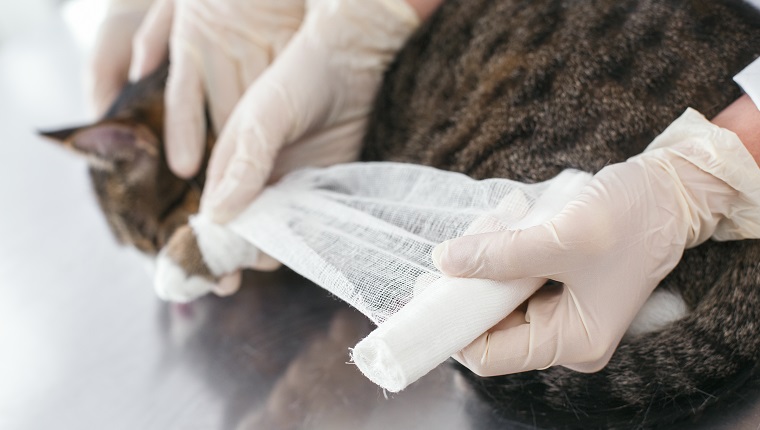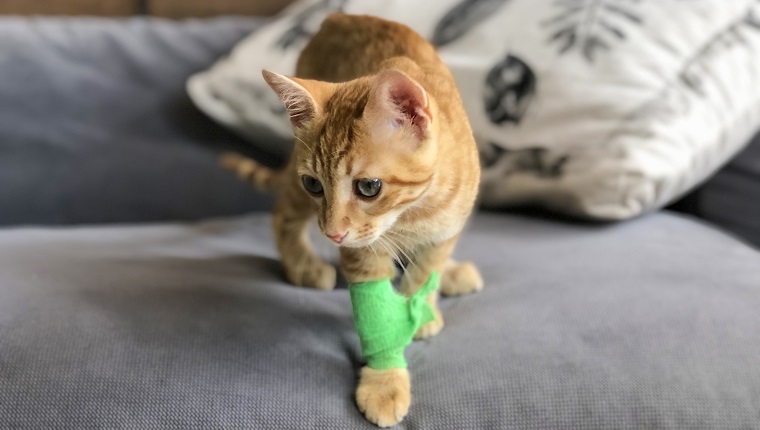Minor wounds on cats can occur for all manner of reasons while felines go about their day to day business. Examples of minor wounds on cats include scratches, small cuts, and bites.
Outdoor cats can be more likely to suffer minor wounds than indoor cats. In many cases, wounds will heal themselves, so monitoring your cat and keeping them comfortable can be the best course of action.
If you see the signs of a minor wound on your cat that isn’t healing or seems to be getting infected, then you must get to a veterinarian for a proper diagnosis and treatment. Here’s what you should know about the symptoms, causes, and treatments for minor wounds on cats.
Symptoms Of Minor Wounds On Cats
Symptoms of minor wounds on cats can take a range of different forms. Some of the most common wounds cats suffer from include:
- Scratches
- Bites
- Cuts
These wounds may cause bruising, breakages in the skin, or even some bleeding.
Cats may lick, chew, or scratch the affected area, especially if the wound causes itchiness. This can lead to secondary wounds or infections, so it is important to keep the wound clean and prevent additional scratching or chewing.
Causes Of Minor Wounds On Cats

The cause of a minor wound on a cat could come from many different scenarios.
Some cats might fight another feline or animal and end up with a cut or a scratch. Sometimes, a cat might pick up a minor wound from objects in their environment, whether that’s a tree or prickly bush outside or a sharp piece of furniture inside.
Treatments For Minor Wounds In Cats
If you suspect that your cat is suffering from a minor wound, then the first thing to do is to examine the affected area. Sometimes, wrapping your cat in a towel can help keep them still and calm while you examine the wound.
It’s important to find out if the wound is still bleeding. If it is, use a clean medical gauze pad to help stop the bleeding.
Next, clean the wound with an antibacterial product that has been approved for safe use on cats. Your vet can advise you on appropriate brands if needed. Follow the product’s cleaning instructions, and adhere to the frequency of cleanings suggested.
While examining and cleaning the area, take a good look to see if there are any signs of infection or if there is any built up debris or an object embedded in the wound. These will require a veterinarian’s help to remove safely and cleanly.
In many cases, minor wounds on cats will clean up on their own, just like a bruise or a small cut on a human. But keep checking the wound to make sure that it is not becoming infected or swelling up.
Taking pictures with your camera phone for comparison can help you judge to see if a wound is worsening. If that seems to be the case, call your vet straight away.
Has your cat ever suffered from a minor wound? How did you help them recover? Let us know in the comments section below.









